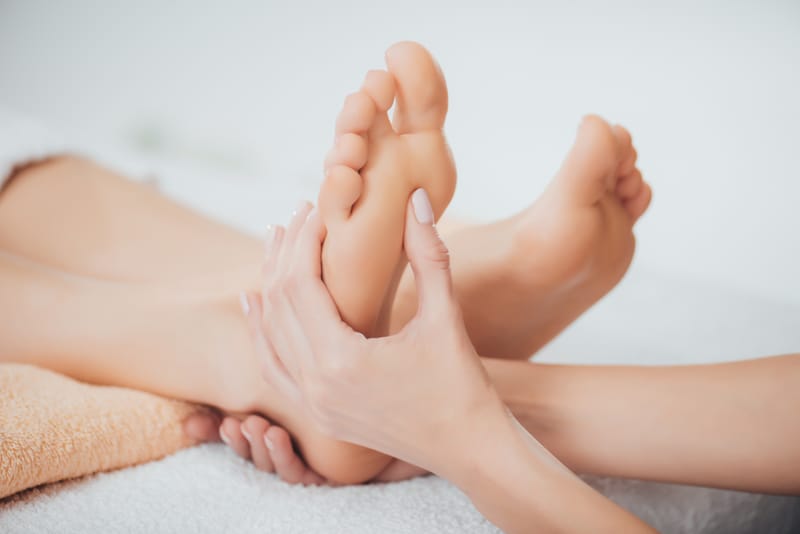Reflexology

What Is Reflexology?
Reflexology is a type of therapy that uses gentle pressure on specific points along your feet (and possibly on your hands or ears as well) to help you feel better. The theory is that this eases stress, and that helps your body work better. It’s also known as zone therapy.
The way reflexology connects spots on the outside of your body to the inside is a bit like acupuncture and acupressure. But those therapies use points all over your body, not just on your feet, hands, and ears. And while reflexologists do use their hands, it isn’t a form of massage.
Like those other therapies, though, reflexology is complementary to medical treatments. It can be done alongside traditional care, but it’s not an alternative to it, and reflexologists don’t diagnose or treat illnesses.
Reflexology Benefits
Reflexology may help you feel less stressed, more relaxed, and more energized. But the benefits might go deeper if you have certain health issues.
Some people with medical conditions find that they feel less pain and discomfort if they have less stress, and reflexology may help with that. Researchers reviewed 17 studies of the psychological benefits of the therapy and found that it boosted feelings of well-being and made it easier for people to manage their conditions.
More research is needed to see if reflexology can have a direct effect on specific conditions, but some people claim it may ease:
Anxiety among people who've had heart surgery
Pain during labor
Arthritis pain
Some symptoms of multiple sclerosis, like fatigue and uncomfortable skin sensations
Emotional and physical pain caused by cancer
It may also help:
Improve sinus issues
Relieve back pain
Ease constipation